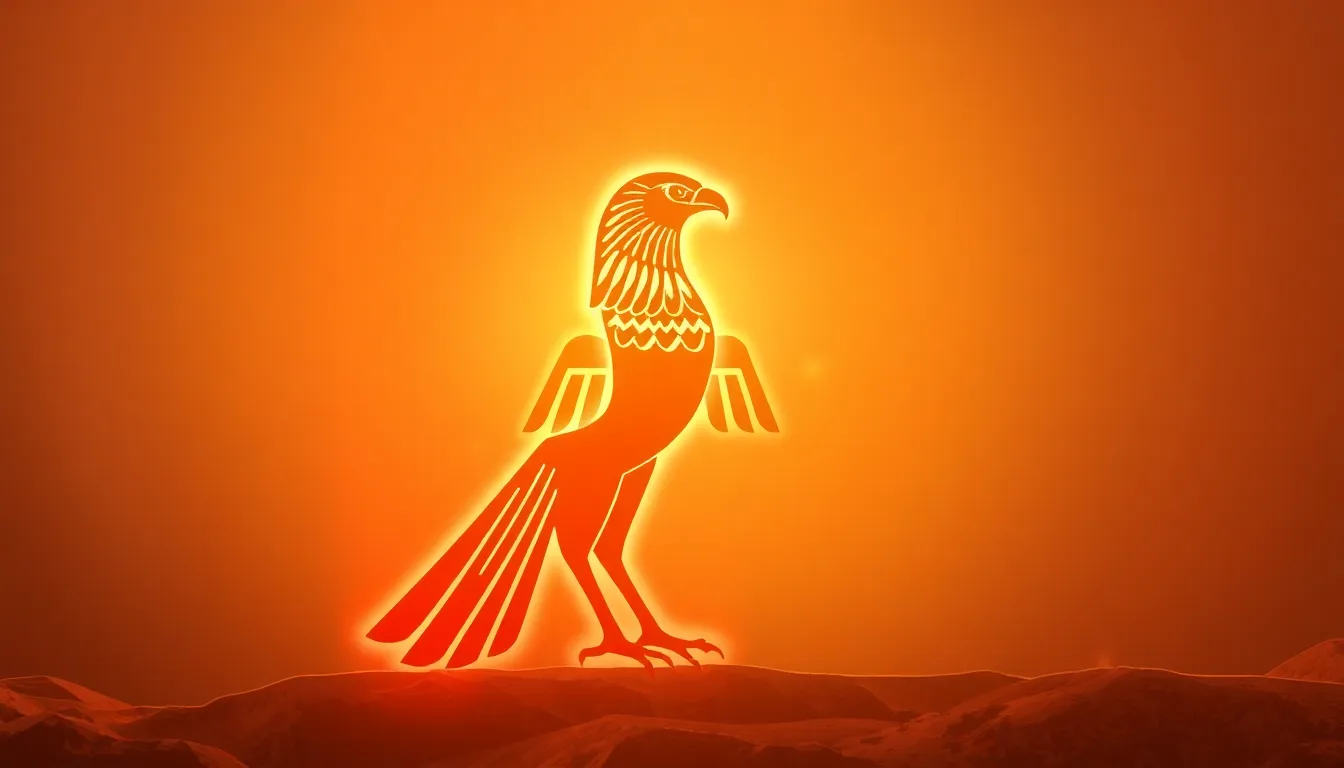The Spiritual Significance of the Egyptian Falcon Symbol
I. Introduction
The Egyptian falcon symbol holds profound significance in the tapestry of ancient Egyptian culture and mythology. Revered for its majestic presence and keen hunting ability, the falcon transcends its physical form to embody spiritual concepts that influenced the beliefs and practices of the ancient Egyptians.
Symbols played a crucial role in ancient Egyptian culture, serving as conduits for religious and philosophical ideas. They were not merely representations but rather gateways to understanding the divine and the cosmos. This article aims to explore the multifaceted significance of the falcon symbol in ancient Egypt, delving into its historical context, mythological associations, and enduring legacy.
II. Historical Context of the Falcon in Ancient Egypt
In ancient Egyptian mythology, the falcon was a powerful symbol associated with various deities and royal authority. The falcon’s presence can be traced back to the earliest periods of Egyptian civilization, where it was often linked to the divine and the heavens.
- Predynastic Period: The falcon appeared in early artistic representations, often symbolizing the sky and the divine.
- Old Kingdom: The falcon was closely associated with the sun god Ra, reinforcing its significance as a symbol of power and protection.
- New Kingdom: The worship of Horus, a key falcon deity, became central to the pharaonic ideology.
The falcon’s relationship with Egyptian rulers was profound; it was seen as a protector and a guide. Pharaohs often identified themselves with Horus, the falcon god, to legitimize their reign and demonstrate their divine right to rule.
III. The Falcon as a Representation of the Sky
In ancient Egyptian belief, the sky held immense spiritual significance, serving as the realm of the gods and the afterlife. The falcon, with its ability to soar high above the earth, became a natural emblem of the sky.
- Symbolism of the Sky: The sky represented eternity, the divine, and the limitless possibilities of the universe.
- Physical Attributes: The falcon’s sharp eyesight and swift flight were seen as metaphors for spiritual insight and the soul’s journey.
The falcon’s connection with the sun god Ra further emphasizes its importance. Ra, often depicted with a falcon head, was believed to traverse the sky daily, symbolizing the cycle of life, death, and rebirth.
IV. The Falcon Deity: Horus
Horus, one of the most significant deities in ancient Egypt, is often depicted as a falcon or a man with a falcon head. He embodies kingship, protection, and the heavens.
- Attributes of Horus: Horus is associated with the sky, war, and hunting. He symbolizes the triumph of order over chaos.
- Kingship: Pharaohs were considered the earthly embodiment of Horus, reinforcing their divine authority.
The Eye of Horus, a symbol of protection and royal power, is one of the most enduring symbols of ancient Egypt. It represents health, restoration, and the protective qualities of the falcon.
V. The Falcon in Funerary Practices
The falcon’s significance extended into funerary practices, where it served as a symbol of protection and guidance for the deceased in the afterlife. The ancient Egyptians believed that the falcon could help guide souls to the afterlife.
- Funerary Rites: Falcons were often depicted in tomb art and funerary artifacts, symbolizing the deceased’s journey to the afterlife.
- Protection: The presence of falcon imagery was believed to provide protection against malevolent spirits.
Artifacts such as amulets and inscriptions featuring falcons were common in burial practices, signifying the deceased’s connection to the divine and their hope for a safe passage to the afterlife.
VI. The Falcon in Art and Iconography
The falcon’s image is prevalent in ancient Egyptian art, reflecting its spiritual significance and the beliefs associated with it. Various depictions can be found in tomb paintings, sculptures, and temple reliefs.
- Artistic Representations: Falcons were depicted in scenes of hunting, worship, and protection, often alongside deities like Horus.
- Symbolic Meanings: Different forms of falcon imagery conveyed various meanings, such as power, authority, and divine guidance.
The influence of falcon imagery continues to resonate in modern interpretations of ancient Egyptian culture, where it serves as a reminder of the rich symbolism and spiritual beliefs of the ancient Egyptians.
VII. Contemporary Interpretations and Cultural Relevance
In recent years, there has been a resurgence of interest in ancient symbols, including the Egyptian falcon. This revival reflects a broader fascination with spirituality and the exploration of ancient wisdom.
- Modern Spirituality: The falcon is often embraced in modern spiritual practices, symbolizing vision, freedom, and the connection to higher realms.
- Cultural Legacy: The Egyptian falcon symbol continues to inspire art, literature, and cultural expressions, maintaining its relevance in contemporary society.
As people seek to understand their spiritual paths, the falcon serves as a potent symbol of guidance and insight, bridging the ancient with the modern.
VIII. Conclusion
In summary, the Egyptian falcon symbol encapsulates a rich tapestry of spiritual meaning, historical significance, and cultural legacy. From its association with the sky and the sun god Ra to its embodiment in the deity Horus, the falcon symbolizes protection, guidance, and the divine connection to the afterlife.
The enduring spiritual significance of the falcon continues to inspire interest and exploration in both ancient and contemporary contexts. As we reflect on these ancient symbols, we are invited to delve deeper into the mysteries of Egyptian mythology and discover the profound lessons they offer.
For those intrigued by the ancient world, the study of Egyptian symbols like the falcon provides a pathway to understanding the spiritual beliefs that shaped one of history’s most fascinating civilizations.




